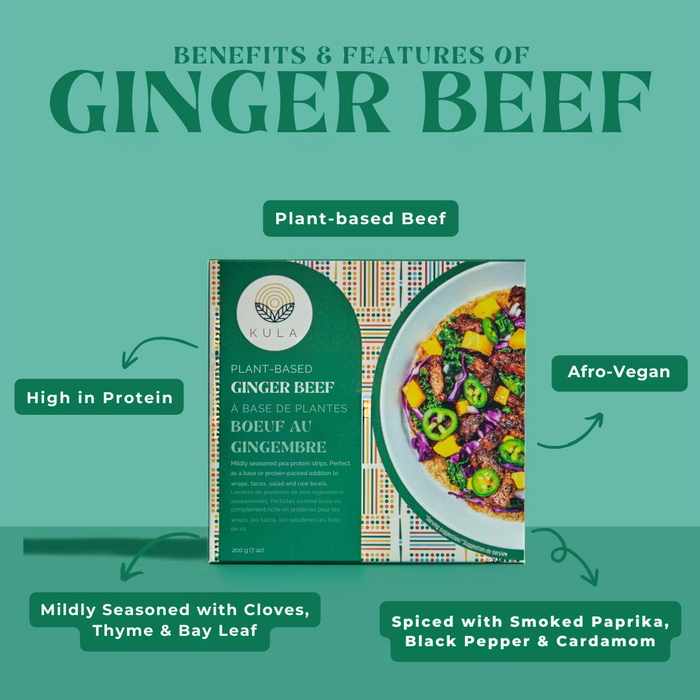Best Brands for Gluten Free BBQ Sauce in Chicago
Best Brands for Gluten Free BBQ Sauce in Chicago
Blog Article
All Regarding Healthy Food: Advantages of Taking On Plant Based Choices
The discussion bordering plant-based diets has actually gotten significant interest recently. Many people are checking out the possible health advantages, nutritional benefits, and environmental influences connected with these nutritional options. As individuals become much more familiar with their food's influence on health and sustainability, inquiries arise concerning the usefulness of taking on such a lifestyle. What particular adjustments can one expect, and just how might these selections improve not just personal health however likewise the planet's future?
Comprehending Plant-Based Diet Plans
Many people associate plant-based diets mostly with vegetarianism or veganism, these diet regimens can include a vast range of consuming patterns that focus on entire, minimally refined plant foods. Such diet regimens typically include fruits, veggies, entire grains, nuts, seeds, and legumes, while restricting or removing animal products. This versatility enables people to customize their nutritional selections according to personal choices and dietary requirements. Some might adopt a primarily plant-based diet while still periodically consuming meat or dairy products, usually described as a flexitarian strategy. The focus remains on including even more plant foods, which can cause a diverse selection of dishes and flavors. Comprehending these different interpretations of plant-based eating is vital for valuing its ease of access and appeal in contemporary food culture.
Health And Wellness Advantages of Plant-Based Foods
The wellness advantages of plant-based foods are significant, using a nutrient thickness advantage that supports total health. Research indicates that these foods can improve heart health and wellness and play an important duty in reliable weight management. By integrating much more plant-based choices, individuals might boost their dietary options and promote long-term health.
Nutrient Thickness Benefit
Nutrient thickness plays an essential function in the health advantages of plant-based foods, making them a compelling option for those looking for a balanced diet. Plant-based foods, such as fruits, vegetables, legumes, nuts, and entire grains, are commonly rich in essential vitamins, minerals, and antioxidants while being reduced in calories. This high nutrient density allows people to eat fewer calories while still fulfilling their dietary needs. Additionally, these foods are packed with nutritional fiber, promoting digestive health and wellness and helping in weight administration. By integrating nutrient-dense plant-based alternatives, customers can boost their general wellness, sustain their body immune systems, and minimize the danger of chronic diseases. Eventually, the nutrient density of plant-based foods emphasizes their importance in a health-conscious way of life.
Heart Health Enhancement

Weight Management Support
Along with advertising heart health and wellness, a plant-based diet can significantly aid in weight management. This nutritional approach highlights whole foods such as fruits, vegetables, vegetables, nuts, and entire grains, which are generally reduced in calories and greater in fiber compared to animal-based products. The high fiber content aids boost satiation, lowering general calorie consumption. Plant-based diets are usually abundant in essential nutrients while low in undesirable fats, making it less complicated to maintain a healthy weight. Study shows that individuals that adopt a plant-based way of life often tend to have lower body mass indexes (BMIs) and experience even more successful weight reduction compared to those who take in meat-heavy diet regimens. Subsequently, embracing plant-based look at here choices is a tactical option for efficient weight monitoring
Nutritional Value of Plant-Based Components
Plant-based active ingredients are abundant in important nutrients, using a varied selection of vitamins, minerals, and anti-oxidants that add to overall health. A comparison of protein resources reveals that while animal products are frequently considered as exceptional, lots of plant-based choices supply appropriate healthy protein and various other useful compounds. Comprehending the nutritional value of these ingredients can help individuals make informed nutritional choices.
Necessary Nutrients in Plants
Nutrient-rich components discovered in plants provide a diverse selection of necessary vitamins and minerals that contribute substantially to general health and wellness. These components are rich in vitamins A, C, and K, which support immune function, vision, and blood clot, respectively. Furthermore, plants offer vital minerals such as magnesium, potassium, and calcium, critical for heart health and wellness, muscle function, and bone stamina. The visibility of fiber in plant-based foods help food digestion and promotes a healthy gut microbiome. Antioxidants, located generously in vegetables and fruits, help fight oxidative anxiety and minimize swelling. Lots of plant foods are reduced in calories yet high in nutrients, making them a superb option for those seeking to keep a healthy weight while making certain suitable nutrient consumption.

Contrasting Healthy Protein Sources
Healthy protein resources vary considerably in their nutritional profiles, with plant-based active ingredients supplying one-of-a-kind benefits. Unlike animal healthy proteins, which usually consist of hydrogenated fats and cholesterol, plant healthy proteins tend to be reduced in these undesirable parts. Legumes, nuts, seeds, and entire grains are abundant in important amino acids, fiber, vitamins, and minerals. Lentils offer high healthy protein content together with substantial iron and folate, while click here to read quinoa is a total healthy protein, providing all 9 important amino acids. Furthermore, plant-based healthy proteins are often come with by antioxidants and phytochemicals that sustain total health. The change to plant-based healthy protein sources not only enhances dietary consumption yet likewise straightens with lasting nutritional techniques, lowering environmental impact and promoting lasting wellness advantages.
Ecological Impact of Plant-Based Consuming
As understanding of environment change grows, numerous people are discovering sustainable nutritional choices that can substantially lessen their environmental impact. Plant-based consuming has actually become a significant factor to decreasing greenhouse gas exhausts, which are mostly related to livestock production. The growing of fruits, legumes, veggies, and grains generally requires fewer resources, such as water and land, compared to pet farming. Additionally, plant-based diets can lead to decreased deforestation, as less land is required for grazing animals or growing animal feed. By moving towards plant-based alternatives, customers can support biodiversity and advertise healthier ecological communities. In general, welcoming plant-based eating not only benefits individual health yet likewise stands for an important step toward environmental sustainability and conservation initiatives.
Overcoming Common Misconceptions
While lots of individuals recognize the advantages of a plant-based diet regimen, a number of misconceptions typically deter them from totally welcoming this lifestyle. A typical belief is that plant-based diet regimens lack sufficient protein; nevertheless, numerous plant resources, such as beans, nuts, and tofu, provide sufficient healthy pop over to this site protein. Furthermore, some assume that this diet is costly, when in reality, staples like beans, rice, and seasonal vegetables can be fairly affordable. One more false impression is that plant-based eating is extremely restrictive, whereas it actually uses a diverse variety of foods and flavors. Lastly, numerous fret that a plant-based diet might result in shortages, yet with appropriate planning, people can acquire all needed nutrients, consisting of minerals and vitamins, while enjoying a large variety of delicious dishes.
Tips for Transitioning to a Plant-Based Way of life
Making the shift to a plant-based way of living can be an enriching experience, though it frequently calls for some advice to browse the first adjustments. People are urged to start slowly, integrating even more fruits, vegetables, beans, and entire grains into their dishes while lowering meat and dairy products consumption. Dish preparation is crucial; preparing a regular menu can aid relieve the modification and avoid last-minute unhealthy choices. Checking out cooking approaches and brand-new dishes can additionally preserve and improve the experience exhilaration concerning plant-based consuming. In addition, signing up with support system or areas can supply motivation and share beneficial suggestions. Staying notified about nutrition warranties balanced dishes, avoiding shortages while fostering a healthy, satisfying plant-based lifestyle.

Delicious Plant-Based Meal Ideas
Discovering scrumptious plant-based meal ideas can motivate individuals to embrace a more healthy diet regimen. One preferred choice is a passionate quinoa salad, including cherry tomatoes, cucumber, and a zesty lemon-tahini clothing. An additional fave is a mouthwatering lentil stew, packed with carrots, celery, and fragrant herbs, best for a reassuring dinner. For morning meal, over night oats made with almond milk, chia seeds, and covered with fresh berries provide a healthy beginning to the day. In addition, a vivid veggie stir-fry with tofu and a selection of vibrant veggies can be a fast yet pleasing dish. Luscious avocado toast on whole-grain bread, sprinkled with spices and seeds, supplies a basic yet delicious snack. These meals showcase the variety and richness of plant-based eating.

Regularly Asked Concerns
Can a Plant-Based Diet Regimen Supply Enough Healthy Protein?
The inquiry of whether a plant-based diet plan can offer adequate protein prevails. Numerous sources, consisting of beans, nuts, seeds, and entire grains, can meet healthy protein requires properly, sustaining a balanced and healthy diet regimen for individuals.
Are Plant-Based Diets Appropriate for Children?
The viability of plant-based diet regimens for kids depends on mindful preparation. Appropriate nutrients need to be ensured, including vitamins, minerals, and healthy proteins. With proper assistance, such diets can sustain healthy and balanced development and advancement in kids.
Just how Do I Dine Out on a Plant-Based Diet?
Eating in restaurants on a plant-based diet plan entails seeking dining establishments with diverse food selections, requesting for alterations, and exploring vegan-friendly alternatives. Preparation ahead and interacting dietary choices can boost the eating experience while maintaining dietary selections.
What Are Common Irritants in Plant-Based Foods?
Common irritants in plant-based foods include soy, gluten, nuts, and seeds - Plant Based Chicken. Individuals complying with a plant-based diet regimen must recognize these allergens and read tags meticulously to prevent damaging reactions and guarantee secure usage
Can Plant-Based Diets Assist With Weight Reduction?
Research shows that taking on a plant-based diet plan may help with weight management due to its typically reduced calorie thickness and higher fiber web content. This mix can boost satiation, aiding people manage their calorie consumption effectively. Lots of people associate plant-based diets mostly with vegetarianism or veganism, these diet plans can include a broad variety of eating patterns that prioritize whole, minimally refined plant foods. Nutrient density plays an essential function in the wellness benefits of plant-based foods, making them a compelling option for those seeking a well balanced diet regimen. Plant-based diet regimens have actually been revealed to considerably boost heart health, as they typically include elements that sustain cardio function. In enhancement to advertising heart wellness, a plant-based diet plan can substantially help in weight administration. A common belief is that plant-based diet regimens lack sufficient healthy protein; nonetheless, numerous plant resources, such as legumes, nuts, and tofu, provide sufficient healthy protein.
Report this page